|
Louisa May Alcott's novel, Work: a Story of Experience, is a defence of women's quest for independence through work that seems to owe much to Mary Wollstonecraft's philosophy. One running theme of the novel is that poor women can achieve emancipation through work. Much work doesn't allow them to do so because it is drudgery for abusive employers. But the book features a number of virtuous people who make it part of their life work to help create better employment situations for women in need, women who want to escape forced marriage (as is the case with 15 year old Kitty) or women who forfeited family ties by entering in a relationship outside marriage and are now shunned by society (such as Rachel) The heroine of the novel, Christie Devon, declares to her aunt in the first line of the book that there is going to be 'a new declaration of independence', and that she is going to leave home, try out various lines of work and hopefully end up with a career. She wants to see the world and earn a living, but mostly, she wants to be free ('I do love luxury but I love independence more', says she when turning down a rich suitor she does not love). She tries various professions: maid, governess, actress, companion, seamstress, and at one point she is without work and destitute and considers suicide, but is rescued by a woman who is part of circle of people who help working women. By the end of the story, Christie has found a career: she has become a speaker and activist on behalf of working women. The women she helps are poor, but she believes that there is room for improvement in the condition of rich women too, and when a rich acquaintance comes to ask her how she might help, she tells her as much: rich women 'need help quite as much as the paupers, though in a very different way'. The task she gives Bella is to set up a beautiful and elegant salon in her brother's home, and there set a new fashion, one for common sense. She adds: " I don't ask you to be a De Stael and have a brilliant salon: I only want you to provide employment and pleasure for others like yourself who are now dying of frivolity or ennui." What's distinctive about Alcott's proposal is that the salon is designed primarily for the improvement of women. Like a traditional salon, it is hosted by a woman, and welcomes men and women of good society. But unlike traditional salons which are mostly for facilitating the exchange of ideas, literary, political or otherwise among men, this one is designed to encourage women to think about things other than dress and parties, and to embrace more 'old-fashioned' and 'commonsensical' ideals. This, according to Alcott is the sort of help rich women need, and it sounds very much like Wollstonecraft's quest for a slowly achieved revolution in manners.
0 Comments
The French translation of Wollstonecraft's Vindication of the Rights of Woman was published before she arrived in Paris in the winter 1792, and reviewed favourably in at least four reviews, including one, La Chronique de Paris, edited by Condorcet. The name of the translator is not noted anywhere in the translation. Isabelle Bour, in an article on the reception of Wollstonecraft in revolutionary France, suggests that it was a Girondin. The translation is a good one: it contains spelling mistakes rather than mistakes in translation, suggesting that it was done in a hurry by someone who knew English well. It is also annotated in a way that suggests familiarity with English culture and literature, and a desire to defend 'Papist' France against the allegations of a protestant writer, while at the same time poking fun at Wollstonecraft's old fashion religiosity. The translator seems thoroughly on board with Wollstonecraft's defence of women, until, that is, we reach a footnote to Chapter 11 (which mostly concerns education of women) where we get a peak at the translators's common-revolutionary-garden variety and insidious sexism: Here the author is talking about France. It is true that the Revolution is allowing us to pay attention to women who for too long were treated with superficial respect and deep contempt. We owe them a better education; because mothers are the first teachers that nature and society offers children. We owe them divorce, which only the tyranny of priests was able to take from them. A large number among them have proven that they were worthy of liberty; they only need to be enlightened. More enlightened, they will become more virtuous and happier. We owe them reparation for all the gothic crimes of feudality against them, for inheritance, etc.; for if nature seems to refuse them political rights, they have as many claims to civil rights as men. In a word, it is up to them to give the new regime the firmness it needs. Since the French nation has shaken off it yoke, we have heard much about a counter-revolution. Legislators! Don't deceive yourselves: if there is to be a counter-revolution, it will come from the influence of women. So let the constitution concern itself with them, what you do for them will not be lost. What you have deposited in the hands of the paterfamilias really belongs to them, as they will transmit it to the future generations. The translator is quite clear that women are not and should not be political rights holders, and that the main reason why we should grant them rights is that they are mothers to future citizens.
Although Wollstonecraft does emphasise the importance of the role of women as mothers in a republic, she by no means reduces their citizenship to that, indeed, takes pain to say that women need not marry nor have children, but that they still deserve to be treated as full citizens. The translator clearly accepts what Sieyes proposed in the draft of the Constitution, namely that women should be only passive citizen, i.e. enjoy civil, but not political rights. Not many in the eighteenth century agreed that women should be writers of anything other than gossipy letters. But even those who did found it hard to agree as to when was the best time for a woman to become a writer. A woman who had the misfortune not to be married or have children could write at any time, provided she did not disturb her relatives. Hence Jane Austen would get up early, before her family’s breakfast, and write at the dining table. Afterwards there was household tasks to attend to, of course, and any other time she could take up a pen was devoted to writing letters to family members who were away. Considerations of respectability only applied to respectable women, of course. So Olympe de Gouges, widowed, living under her assumed name instead of her husbands (Aubry), bringing up her boy alone, assisted financially by her lover, and pursuing a career as a playwright could write when she wanted to. This is probably why her biographer lists over 140 pieces penned by Olympe in the last five years of her life. (Her writing career began 1788 and she died in 1793) Little is known of Sophie de Grouchy’s writing habits, except for a report from her aunt that as a twenty year old, staying in a convent finishing school in Normandy, she spent so much time reading and translating that she made herself ill and damaged her eyesight. Given that the social life of the school was quite active – the idea was for the young women to be presented to society and hopefully find husbands – Sophie probably worked during the night, by candlelight. The only obstacle standing between her and her work then was her social life, and it is likely that even when she married and became a mother this carried on, i.e. that her activities as a saloniere were the only thing that stopped her from writing when she wanted to. Her daughter, Eliza, had a wetnurse, so that Sophie was not bound by the usual duties of motherhood. Manon Roland was firmly opposed to wet-nursing, being a follower of Rousseau, and a middle class woman, less able to ‘adopt’ a nurse, i.e. invite a woman to become a permanent member of the family and live under their roof until she could be retired. Manon also had some duties at home. Even though she had servants, they had to be trained, supervised, their work had to be done for them when they were sick and big jobs, such as laundry, had to be shared, and dinner had to be ordered, and prepared by herself when she wanted something done in a particular manner. And most importantly, children – in her case a daughter, Eudora – had to be educated following Rousseauian precepts. But none of this, Manon reflected, ought to take particularly long, so that a good mother and housewife ought still to have plenty of time for study and writing. Those who know how to organize their work always have leisure time. It is those that do nothing that lack the time to do anything. Moreover it is not surprising that women who spend their time in useless visiting and who think they are badly dressed if they have not spent a great deal of time at their mirror, find their days too long through boredom and too short for their duties. But I have seen those we call good housewives become unbearable to the world and even their husbands through a tiresome attention to little things. Manon’s stance was not unlike that of Mary Wollstonecraft, who claimed that a married middle class woman with children was in an ideal position, once her children were at school and no longer needed her full time attention, to take up science, literature or the arts. And did they pursue a plan of conduct, and not waste their times in following the fashionable vagaries of dress, the management of their household and children need not shut them out from literature, nor prevent their attaching themselves to a science, with that steady eye which strengthens the mind, or practicing one of the fine arts that cultivate the taste (VRW). Both in Roland and Wollstonecraft’s case, however, the life plan that would allow women to write while mothering young children relied very much on a reformed, republican and proto-feminist model of family life in which only necessary household duties were perfomed - the ‘vagaries of dress’ to be avoided and ‘if men do not neglect the duties of husbands and fathers’. I expect a woman to keep her family’s linen and clothing in good order, to feed her children, order, or herself cook dinner, this without talking about it, keeping her mind free and ordering her time so that she is able to talk of something else, and to please, at last, through her mood, as well as the charms of her sex So what would an 18th woman who wanted to write but had no expectations that a revolution would bring about major changes in her household duties do? This was the case of Hannah Mather Crocker, born in Boston in 1752, writer of several books and pamphlets, including “Observations on the Real Rights of Women” a work in which she cites Wollstonecraft amongst others. Crocker, although she had always been philosophically inclined, only began to write in earnest once her ten children had left home, remarking that this period in a woman’s life was : a fully ripe season to read, write, meditate and compose, if the body and mind are not enfeebled by infirmities. In other words, if bringing up ten children hasn’t left you a mental and physical wreck, now is the time to pursue a literary or philosophical career!
Many republican philosophers of the French Revolution, including Olympe de Gouges, Manon Roland and Sophie de Grouchy, understood the liberty they fought for as the absence of domination, rather than, as later liberal thinkers would, the absence of interference. The two are distinct in several ways, but one way in which they are is this: someone who is dominated, under the power of another, whether a slave, or a wife, or even a child, may well be free from interference at the same time = - but this does not make them free. This point is clearly illustrated by the narrative of Olaudah Equiano, 18thcentury African writer and abolitionist, who toured England in the 1780s, speaking, amongst other places, in Newington Green, Mary Wollstonecraft’s home at the time. In 1789, Equiano published his Interesting Narrative of the Life of Olaudah Equiano, or Gustavus Vassa, the Africanand Wollstonecraft reviewed it for the Analytical Review(she was on the whole enthusiastic but felt the discussion of his religious beliefs at the end was rather boring). Equiano had been sold as a child to an English navy officer, and when they were not at sea, he lived in his master’s London house, where he was taught to read and write, and even baptized by the lieutenant’s daughter. Because he was treated kindly, and accepted as one of the family by his master’s daughter, Equiano developed a sense of security, thinking of himself as something other than a slave: For though my master had not promised it to me, yet, besides the assurances I had received that he had no right to detain me, he always treated me with the greatest kindness, and reposed in me an unbounded confidence. And yet, one day, after months of fighting alongside each other, the lieutenant sold him. Equiano was told to board a barge from where he would join a ship sailing to Montserrat in the Caribbean: I made an offer to go for my books and chest of clothes, but he swore I should not move out of his sight; and if I did he would cut my throat, at the same time taking his hanger. I began, however, to collect myself; and, plucking up courage, I told him I was free, and he could not by law serve me so. But this only enraged him the more. The ship captain introduced himself as his new master, leaving no doubt, this time, as to what the relationship would be: 'Then,' said he 'you are now my slave.' I told him my master could not sell me to him, nor to any one else. 'Why,' said he,'did not your master buy you?' This is a clear example of someone who thought they were free, because they were allowed to educate themselves and work for money (even though Equiano gave his wages to his master, he seemed to have been under the illusion that it was for his upkeep, and he managed to retain enough to buy books). The lieutenant did not interfere with his efforts to better himself; he encouraged him by letting him be educated with and by his daughter. He acted kindly and generously. And yet, at a moment’s notice, with no explanation, he sold him off to a violent man, to an uncertain (but certainly miserable) fate. And even then it took young Olaudah a while to realize that he had not been, at any point, free, that his sense of freedom had been but an illusion, and that all along he had been under the power of his master, depending on his goodwill (or laxity). As soon as that good-will was exhausted, simply because the master needed money, the lack of freedom became painfully apparent.
« I am not become an Atheist, I assure you, by residing in Paris ». 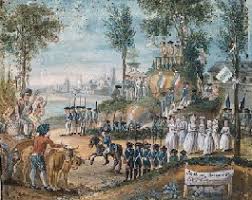 The atheis Cult of Reason, which preceded the theist Cult of the Supreme Being, imposed by Robespierre. The atheis Cult of Reason, which preceded the theist Cult of the Supreme Being, imposed by Robespierre. Mary Wollstonecraft wrote these words in a letter to Joseph Johnson, her publisher, on 15 February 1793, after she had resided in Paris for two months. She had travelled to Paris with a commission to write a series of letters on the French Revolution. Wollstonecraft had come to Paris at the beginning to the reign of Terror. A few months before her arrival, mobs had butchered aristocrats in their prisons, priests and nuns in convents and monasteries, supposedly on the order of Danton. The first few weeks of her stay had themselves been momentous: the King of France had been tried by the people, condemned to death and executed. She had the seen Louis drive past her window on the way to his trial, just a couple of weeks after she had settled in Paris. But even without the growing atmosphere of terror Wollstonecraft would have found it hard to settle in Paris: her French, while good enough for reviewing and translation purposes, was not really up to making conversation, and she was here alone despite having originally planned to travel with friends. Perhaps it is not surprising that her first impressions should be negative, bordering on the depressive. It would not have been surprising either if she had begun to lose her faith. Wollstonecraft's republican friends, the Girondins, were mostly atheists, Grouchy and Condorcet were, the Rolands were, as was Brissot. It seemed that for many French republicans of that time, the rule of reason precluded the belief in God. This may well indeed have been a Parisian thing. Thomas Paine, also ally to the Girondins, was not an atheist either. But he described the French of that time as ‘running headlong into atheism’, and saw his role as their friend to persuade them to give up such silliness. In the Age of Reason, which he wrote while incarcerated in the Palais du Luxembourg, he attempts to divert the French from the path of Atheism, showing them that one could be reasonable, defend the values of the Enlightenment and of the revolution, while still believing in God.
In May 1792, before Mary Wollstonecraft set out for Paris, where she was to act as a war journalist for her publisher Johnson, a French translation of her Vindication of the Rights of Woman came out. Before traveling she wrote to her sister: "I shall be introduced to many people, my book has been translated and praised in some popular prints". So who was the author of this translation that was so favorably reviewed?
La Défense des Droits des Femmes was translated anonymously. Isabelle Bour suggested that it might have been translated by a member of the Girondin circle. This is quite plausible as we know that the Girondins did defend to some extent women's rights. Condorcet published an article arguing that women should be given equal political rights to men in 1791, so that Wollstonecraft's book would have struck him as important and topical. So who was close enough to Condorcet to share his views on women and citizenship, knew enough English to read the Vindication and was an experienced translator? Sophie de Grouchy, of course. We have already speculated as to whether she had read anything by Wollstonecraft, and whether she could have met her. This is another possibility to add to the mix. Janet Todd, Wollstonecraft's biographer, suggests that Wollstonecraft may have been contacted in 1792 by Condorcet and Paine to help rework the plan for educational reform that Talleyrand had started in 1791. Might Wollstonecraft have at least considered taking them up on the offer, and might she have met Condorcet's wife, Sophie de Grouchy over dinner? Probably not. When Wollstonecraft was in Paris, she mostly visited English nationals, such as Helen Maria Williams, and Johnson's associate, Thomas Christie. She was close, ideologically, to the Girondins, some of which were fluent English speakers. Brissot, for instance, had visited England, and developed a friendship there with Catharine Macaulay. Manon Roland also spoke English, having taught herself at the beginning of her marriage, and travelled to England, where she was much impressed with the cleanliness and simple habits of the inhabitants. Sophie de Grouchy was also a fluent English speaker and writer, so that her salon in the early years of the revolution attracted foreign luminaries such as Thomas Paine and Jefferson. But by the time Wollstonecraft moved to Paris, Sophie no longer had a salon, and Manon did not admit any woman in hers. It is therefore unlikely that they would have met. Had they read Wollstonecraft? Again there is no evidence. But a letter dated 20 August 1791 from Sophie to her friend Dumont suggests that perhaps she may have come across one of Wollstonecraft's books. Sophie thanks Dumont for sending her books and political news from England and says: "Until I receive more news from you, I will be busy reading the book you sent me and dreaming about the best way to raise reasonable women who can live with men who are not and will not be reasonable towards women for a long time from now". This could, of course, be coincidence. But it does suggest that the book Dumont sent her and Sophie's dreams might be related. And who, better than Wollstonecraft could be the inspiration for such dreams?
|
About
This is where I live blog about my new book project, an intellectual biography of three French Revolutionary women philosophers. Categories
All
Archives
November 2022
|
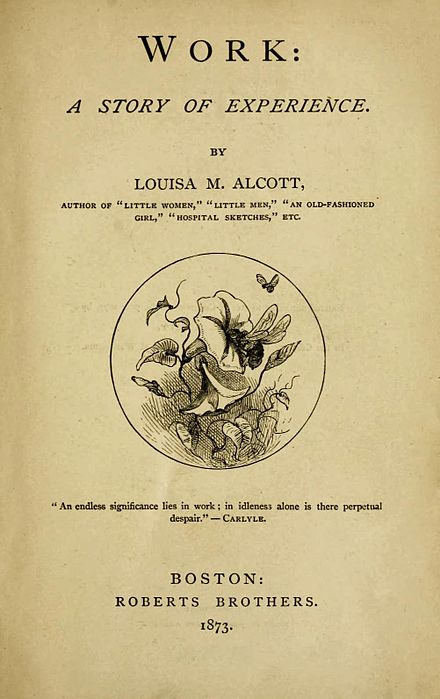
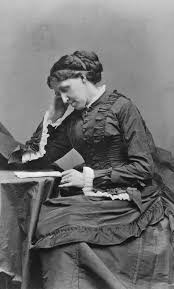
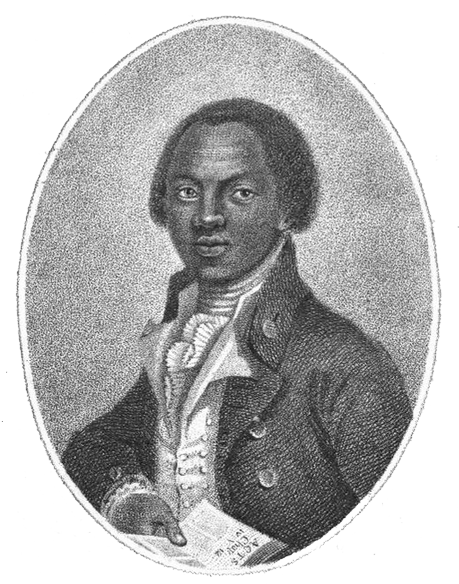
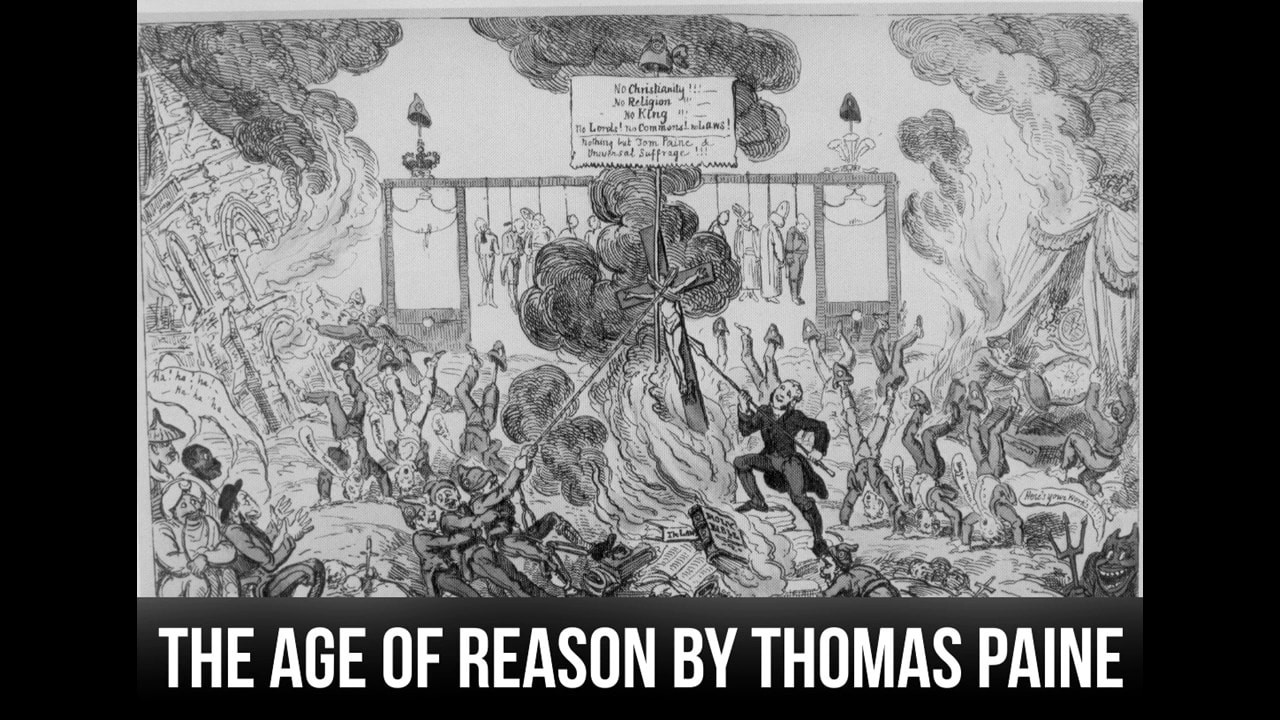
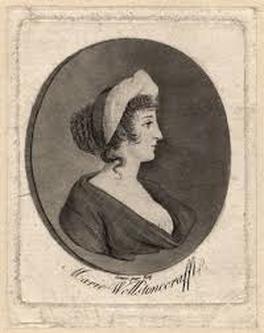
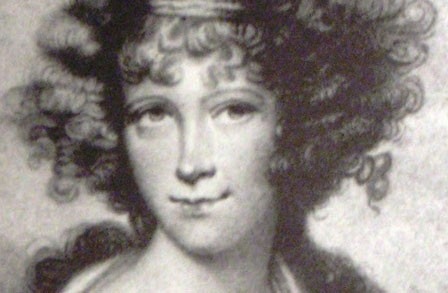
 RSS Feed
RSS Feed